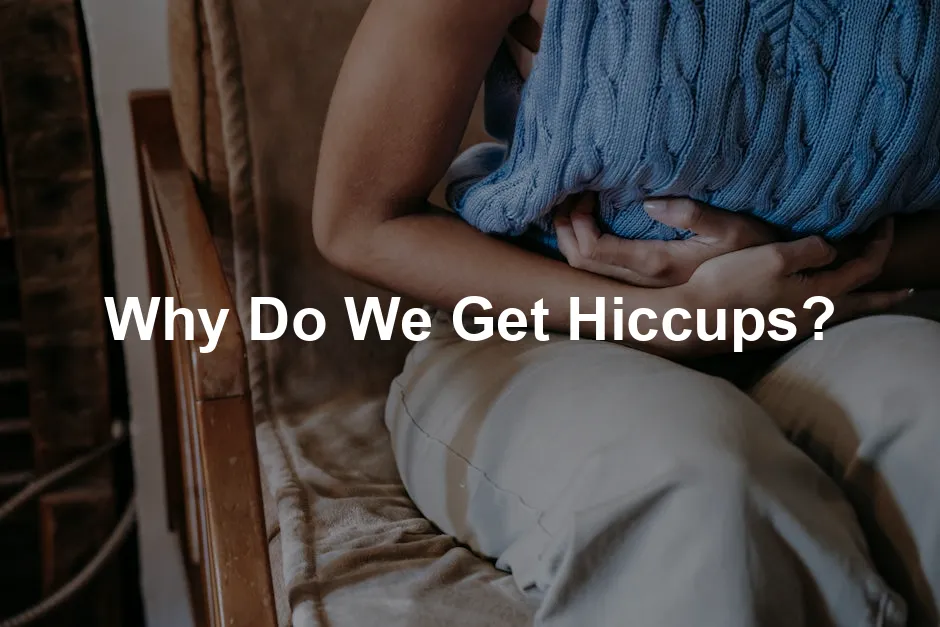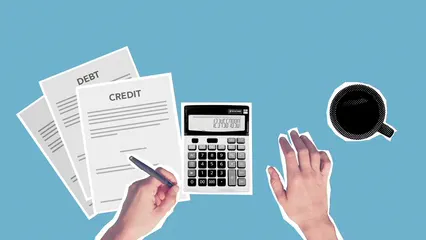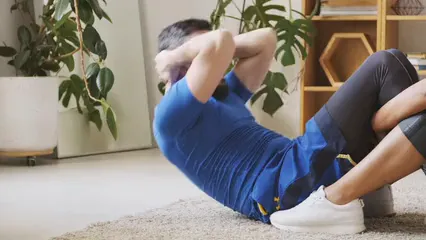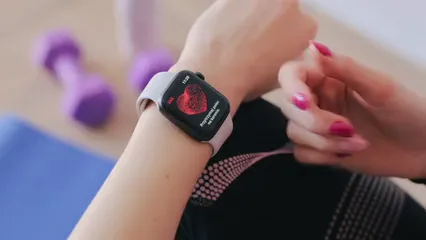
Why Do We Get Hiccups?
Introduction
Hiccups are a common, often annoying phenomenon. Most of us experience them at some point, and they usually happen unexpectedly. You might laugh when someone gets the hiccups, but they can quickly become bothersome. Hiccups occur involuntarily, leading to quirky reactions from those around you. Have you ever wondered what causes these little interruptions? In this section, we will explore the causes, types, and remedies for hiccups.
If you find yourself struggling with hiccups often, you might want to check out the Hiccup Stopper – Hiccup Relief Device. It’s a handy gadget designed to tackle those pesky hiccups head-on, because who wants to be interrupted while enjoying a good meal?
Summary and Overview
Hiccups, medically known as singultus, are involuntary contractions of the diaphragm. This muscle plays a crucial role in breathing. When the diaphragm spasms, it causes a sudden intake of air. This rush of air closes the vocal cords, producing the characteristic “hic” sound.
Hiccups can be transient or persistent. Transient hiccups last only a few minutes, while persistent hiccups linger for more than 48 hours. Understanding the difference is vital. Common triggers include overeating, consuming carbonated drinks, and sudden temperature changes. Emotional factors like stress or excitement can also play a role. For more insights on the emotional aspects, you can refer to this article on why do we feel stressed in modern society.

Understanding the impact of stress on our bodies can help in managing hiccups. why do we feel stressed in modern society
Recognizing the underlying causes of hiccups is essential. If they persist, seeking medical attention is crucial. Prolonged hiccups can signal more serious health issues. So, while most hiccups are harmless, knowing when to consult a doctor is important.
Understanding Hiccups
What Are Hiccups?
Hiccups are involuntary contractions of the diaphragm. This muscle separates our chest from the abdomen and is key for breathing. When the diaphragm spasms, it causes a sudden intake of air. This rush of air then meets the vocal cords, producing the distinctive “hic” sound. Hiccups can feel odd and even a bit annoying, but they usually don’t last long.
The diaphragm plays a crucial role in this process. Normally, it contracts and relaxes to help us breathe. During hiccups, however, a spasm occurs, leading to that sudden intake of breath. It’s a reflex that most people experience at some point in their lives.

Types of Hiccups
Hiccups can be categorized based on their duration:
- Transient Hiccups: These are the most common and last only a few minutes. They often resolve on their own without intervention.
- Persistent Hiccups: When hiccups last more than 48 hours, they are classified as persistent. This duration may indicate an underlying health issue necessitating medical attention.
- Intractable Hiccups: These hiccups continue for months or longer. Intractable hiccups can significantly disrupt daily activities and quality of life.
Causes of Hiccups
Common Triggers
Some hiccup triggers are well-known. Overeating or eating too quickly can cause the stomach to stretch, irritating the diaphragm. Consuming carbonated beverages can also introduce excess air, leading to hiccups. Sudden changes in temperature, like drinking a hot beverage followed by something cold, may also trigger them.
Emotional factors play a role, too. Stress, excitement, or even laughing can provoke hiccups. Have you ever noticed that you get hiccups after an intense laugh? This connection is common for many people. For strategies to cope with anxiety that might help reduce these triggers, check out this article on why are coping strategies essential for handling anxiety in daily life.

Coping strategies can be beneficial in managing emotional triggers that lead to hiccups. why are coping strategies essential for handling anxiety in daily life
In understanding these triggers, we can better manage hiccups when they arise. While most hiccups are harmless, knowing what causes them can help you avoid uncomfortable situations. For those who want to take a more holistic approach, consider trying an Herbal Tea Assortment to keep calm and carry on!

Medical Conditions
Hiccups can sometimes signal underlying medical issues. Here are a few important conditions that can lead to hiccups:
- Nerve Damage: The vagus and phrenic nerves are crucial for diaphragm control. Damage or irritation to these nerves can trigger hiccups. This may occur due to foreign objects in the ear or tumors in the neck.
- Central Nervous System Disorders: Conditions affecting the brain can disrupt the hiccup reflex. Examples include stroke, multiple sclerosis, and meningitis. These disorders can lead to persistent hiccups, often requiring medical attention.
- Gastrointestinal Disorders: Issues like gastroesophageal reflux disease (GERD) and gastritis can irritate the diaphragm. This irritation often results in hiccups, especially after eating or drinking.
- Metabolic Disorders: Conditions such as diabetes and electrolyte imbalances can also cause hiccups. These disruptions affect how the body functions, leading to diaphragm spasms.

Medications That Can Cause Hiccups
Certain medications are linked to hiccups. Here’s a list of common drugs that may trigger this involuntary action:
- Chemotherapy drugs
- Dexamethasone, a corticosteroid
- Anesthetics used during surgery
- Tranquilizers, such as benzodiazepines
If you experience hiccups after starting a new medication, consult your doctor. And while you’re at it, consider having a First Aid Kit handy, because you never know when an emergency might strike!

How to Stop Hiccups
Home Remedies
Hiccups can be annoying, but many home remedies exist. Here are some popular methods:
- Hold Your Breath: Take a deep breath and hold it for as long as you can. This can increase carbon dioxide levels in your blood, possibly stopping hiccups.
- Drink Water: Sipping cold water can help soothe the diaphragm. Consider using a stylish Reusable Silicone Food Storage Bags for your hydration needs!
- Swallow Sugar: A teaspoon of granulated sugar may stimulate the vagus nerve, which could stop hiccups.
However, effectiveness may vary from person to person. If you find these remedies unhelpful, don’t hesitate to try different methods to find what works for you.

Medical Treatments
If hiccups last more than 48 hours, it’s time to see a doctor. Persistent hiccups can indicate underlying health issues. Medical professionals may prescribe medications like chlorpromazine or baclofen. Chlorpromazine is often effective, working by calming the diaphragm. Baclofen, a muscle relaxant, can also help manage spasticity. Other options include metoclopramide and gabapentin, depending on your specific case. If hiccups interfere with daily life, seeking medical attention is crucial.

Lifestyle Changes
You can take simple steps to help prevent hiccups. First, eat slowly and chew your food thoroughly. This reduces the chance of swallowing air. Avoid carbonated drinks, as they can increase gas in your stomach. Spicy and hot foods may also trigger hiccups, so consider limiting these. Additionally, try not to overeat. Smaller, more frequent meals can keep hiccups at bay. Staying calm and reducing stress is key, too.
For those who enjoy a bit of zen, a Yoga Mat can be a great addition to your routine for stress relief and relaxation!

Complications of Hiccups
Prolonged hiccups can lead to several complications. Sleep disruption is a common issue, making it difficult to rest. This can result in fatigue and irritability. Weight loss may occur if eating becomes uncomfortable. The psychological impacts shouldn’t be overlooked either. Persistent hiccups can lead to anxiety or even depression. The frustration of such an involuntary action can take a toll on mental well-being. If you experience ongoing hiccups, addressing these complications is important for overall health.

To help combat stress and promote relaxation, consider a Meditation Cushion to enhance your mindfulness practice!
Conclusion
Understanding hiccups is essential. While they are often harmless, knowing their causes helps you manage them better. Most hiccups resolve quickly, but persistent cases can indicate more serious issues. If your hiccups last longer than 48 hours, seek medical advice. This is vital for your health. Remember, while hiccups are typically benign, don’t hesitate to consult a doctor if they persist. And if you want to keep track of your health metrics while ensuring you’re at your best, a Smartwatch might be just what you need!

FAQs
What causes hiccups in babies?
Hiccups in babies are common and usually harmless. They often occur due to swallowing air while feeding or drinking. A sudden change in temperature can also trigger them. Babies may experience hiccups even in the womb, and they generally do not seem bothered by them. If hiccups persist, it’s wise to consult a pediatrician.
How long do hiccups last?
Hiccups typically last just a few minutes. However, if they continue for more than 48 hours, it’s time to seek medical help. Persistent hiccups can interfere with eating, sleeping, and overall comfort. If you find yourself hiccupping frequently, consider discussing it with your healthcare provider.
Are there any foods that specifically cause hiccups?
Yes, certain foods can trigger hiccups. Spicy foods and carbonated drinks are common culprits. Overeating or consuming very hot or cold items can also lead to hiccups. To reduce the risk, try eating smaller meals and avoiding known trigger foods.
When should I see a doctor for hiccups?
Consult a doctor if hiccups last longer than 48 hours. Also, if they interfere with eating, sleeping, or breathing, medical advice is necessary. Persistent hiccups may indicate underlying health issues that require evaluation and treatment.
What is the longest someone has had hiccups?
The longest recorded case of hiccups is attributed to Charles Osborne. He experienced hiccups for an astonishing 68 years, from 1922 until 1990. His case is a reminder that while hiccups are usually temporary, they can sometimes be chronic and require medical attention.
Can anxiety cause hiccups?
Yes, anxiety can trigger hiccups. Strong emotions like stress or excitement often provoke diaphragm spasms. If you notice that your hiccups coincide with stressful situations, consider relaxing techniques to help manage both your anxiety and hiccups.
Are there any effective treatments for chronic hiccups?
Chronic hiccups may require medical intervention. Treatments can include medications like chlorpromazine or baclofen. These help calm the diaphragm and reduce spasms. It’s crucial to address any underlying causes, so consulting a healthcare provider is recommended if hiccups persist.
Please let us know what you think about our content by leaving a comment down below!
Thank you for reading till here 🙂
All images from Pexels




